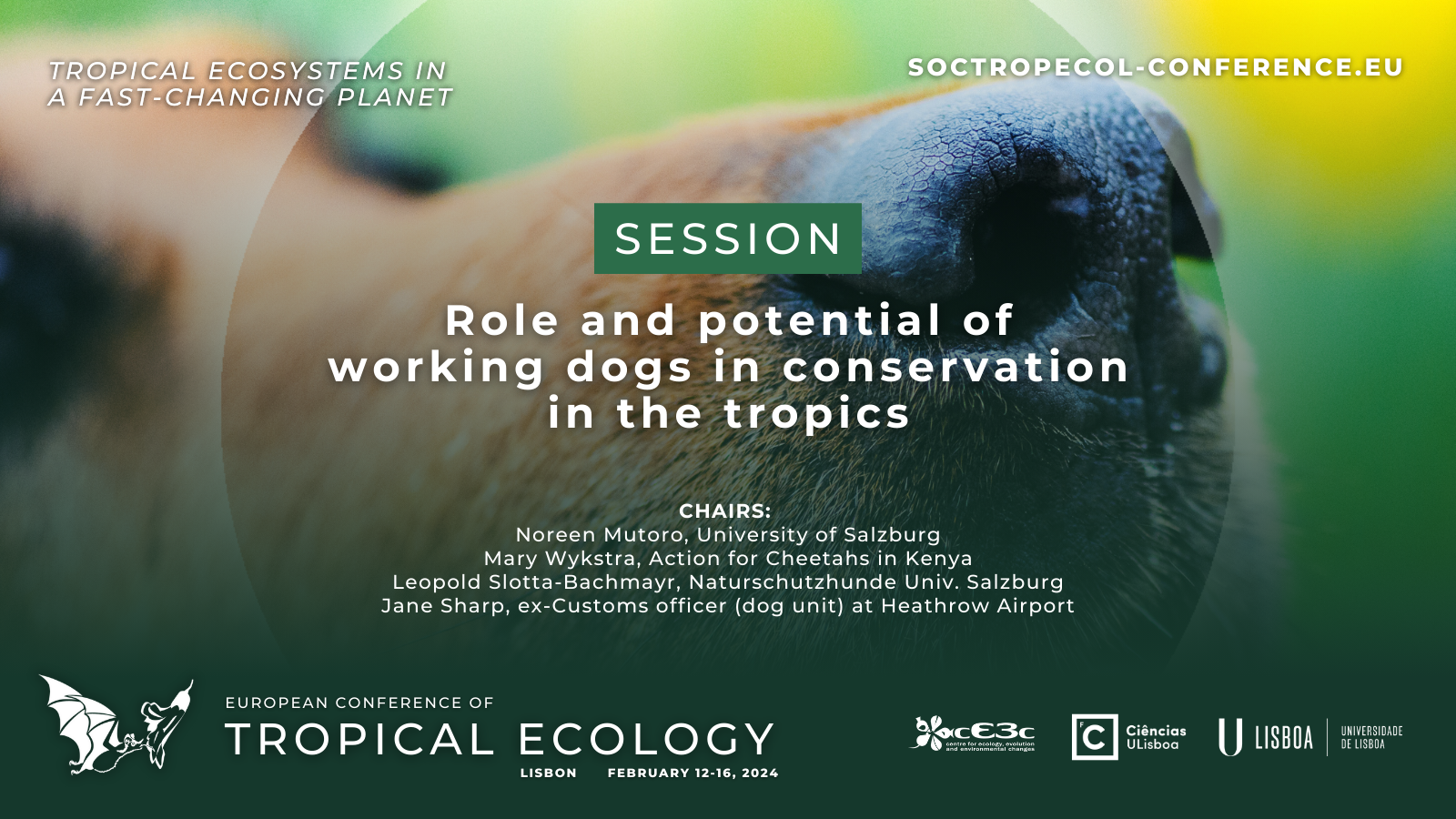[
Close window ]
Role and potential of working dogs in conservation in the tropics
Short title: Dogs in conservation: the nose knows
Chairs: Noreen Mutoro, Mary Wykstra, Dr. Leopold Slotta-Bachmayr, Jane Sharp
Contact: noreen.mutoro@stud.plus.ac.at
Use of dogs in conservation for wildlife population research, monitoring, management, prevention and enforcement of wildlife crimes is increasing globally due to the dogs’ superior olfactory system and ability to develop close working relationships with humans. The tropics host more than two-thirds of the world’s biodiversity and are crucial for ecosystem functions and services both at the local and global level. Tropical regions provide safe spaces to many threatened species which are highly elusive and prone to human-wildlife conflict and wildlife crimes such as poaching and trafficking. Effective conservation and management of biodiversity in such areas would therefore require adequate, standardized and cost-effective monitoring techniques that provide reliable data on changes in species abundance, distribution and physiological health over time. However, the use of conservation dogs in most of the tropics is not well established as compared to North America, Europe and Oceania. In this session, we discuss various ways working dogs are being used for conservation in the tropics and why there is scarcity of research on conservation dogs in some areas.
Download the picture corresponding to your session for posting on social media.

